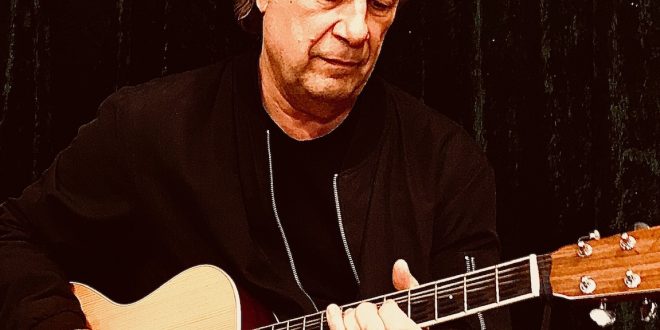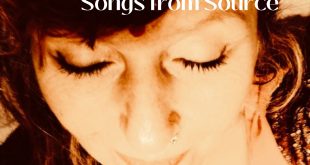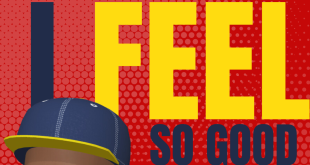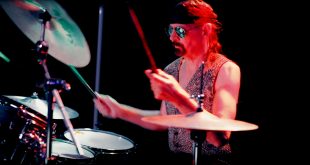ME: How did you first become interested in music therapy and what inspired you to pursue it as a career?
HK:I’ve been making music all my life; composing, playing in bands, performing, touring etc etc. I also worked as a nurse in a hospital; 4 years in a university hospital where I experienced and learned a lot. (surgery department, gynecology department and more) At one point I played in a band with a friend, Koop Hofman, who was also a music therapist. And he said that his profession might also be something for me. It combines music with care. He had seen that well and I started to do that.
ME: How do you incorporate your own experiences and expertise as a musician into your work as a music therapist?
HK: Music is about experience and communication. I work with individual clients as well as with systems (families). Disfunctional patterns in the behaviour of people and families can often be traced back to poor translation of everyone’s experience and poor communication between them. That’s why music is such a great tool to use with these clients. In an acceptable and safe way, the clients are busy with their personal issues through making music and the behavior in the music becomes audible that could not be expressed before. Because I’ve been playing in bands all my life, I have a lot of experience with, for example, ‘tuning in to the other’, ‘looking for harmonies’, ‘soloing when I can and when I dare’, thinking in structures.
ME: Can you share a particularly impactful experience you’ve had as a music therapist, and how music was used to help your client?
HK: There was a boy who had had very bad and traumatic experiences in his hometown, where he was member of a gang. He was suffering from anxiety and depression and he couldn’t talk about it. By working with him, standing next to him, he was able to rap lyrics about another fictional person. He rapped about the boy’s experience, but was actually talking about himself. It was an acceptable way for him to share his own feelings and experience, in an indirect way, with me and later also with his family. It worked as a liberation for him and helped him in the process of standing on his own two feet and becoming an adult.
ME: How do you approach creating and producing music for yourself versus creating music for therapeutic purposes?
HK: In both cases, it’s about creating the feeling of freedom in which you can make music and express yourself. My clients make their own music that they want to make, it is a translation of who they are, how they feel and how they want to relate to the others. I support them in this by, for example, setting boundaries if necessary or learning musical skills if they need them. The key point is that they themselves experience and create, not me.
As a musician, I also create from a freedom that I appropriate. In doing so, I guard my own boundaries. Often my songs originate from an improvisation and I later ‘sculpt’ that improvisation into a song.
So I don’t make music for therapeutic purposes, the client does that himself and that often arises from an improvisation.
ME: Can you tell us about the process of composing and recording your new album, ‘One Life’?
HK: So it often starts from improvising and sitting on the couch with my guitar. I love beautiful combinations, harmonies with bass and melody lines. Over time, my phone is full of snippets of ideas, which I can work out later. For me, the music comes first, the lyrics later. I take my time to work out the songs and make them ‘right’ for me by playing them in my room, in the studio, in the car and on my phone. In addition, I write down ideas for texts, sentences, topics in booklets. There always comes a time when everything comes together well and fits together; For me it is always a wonderful experience and wonderful to experience. I have to admit that I’m a bit disappointed when the song is finally finished,
because I enjoy the process of ‘making’ it so much. You can hear my work and read more info on my website: www.harrykappen.nl
ME: How has your work as a music therapist influenced your own approach to creating and performing music?
HK: I can honestly say that this has not affected me. That’s probably because I’ve been making music for a long time. On the other hand, however, it is certainly true; My experience with making music has definitely influenced my being a therapist.
ME: Can you speak to the power of music in healing and emotional processing, both in your personal life and in your work as a therapist?
HK: Music is emotion and with emotion comes music. Music is also structure in time. That’s the power of music. It translates who you are, what you want to say, and it regulates your behavior. And at the same time, you can share it with others. Through music you can talk about emotions and feelings, without having to talk about them. This is a safe way for my clients (adolescent young people with often low self-esteem) to express themselves. I myself am not much of a ‘talker’ and am someone who prefers to do something rather than talk about it. So for me, music is also a great way to express myself. It structures my thoughts and my feelings are directly translated in a musical way.
ME: What advice do you have for aspiring musicians who are also interested in incorporating music therapy into their career?
HK: Improvise a lot and let go of conventions. Learn how to play an instrument as well as possible and play a lot with others. After that, choose a good music therapy course. Such as the international Master’s programme at Codarts in Rotterdam.
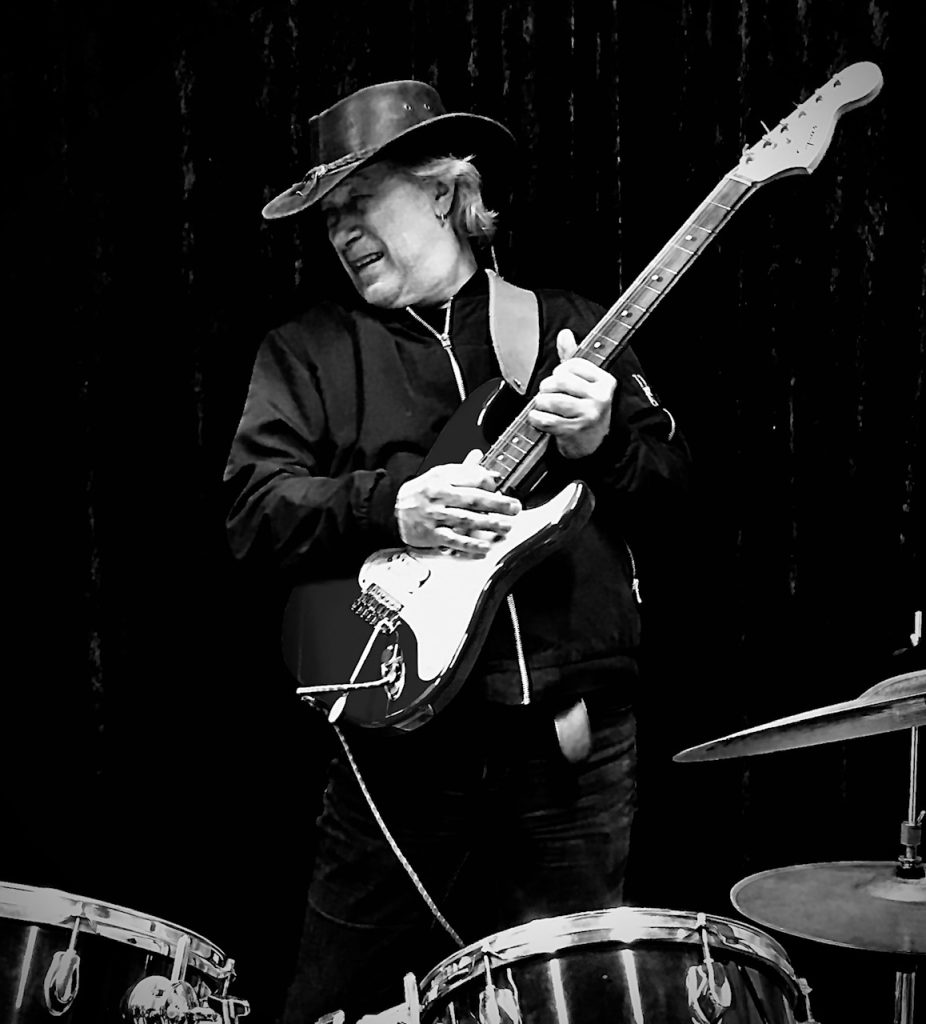
ME: As a multi-instrumentalist, do you have a favorite instrument to play or create with?
HK: I’ve always been a guitarist and that’s where I feel most at home. But sometimes my bass is the starting point or a certain rhythm. The guitar has the advantage that you can play melody and bass lines at the same time.
ME: How do you find balance between your work as a music therapist, musician, and lecturer, and how do these roles complement each other?
HK: I work most with young clients and they always give me a lot of energy. It’s never boring and it’s always varied, which is very stimulating. As a lecturer, I am in a position where I can be myself; I give improvisation lessons to well-educated students there. For some conservatory students who are doing a master’s it is difficult to improvise, to play by feeling and with someone else in the ‘here and now’. That also gives me energy and is fun to do. Because I love my work as a teacher, musician and music therapist, I have no trouble finding a good balance.Improvisation in all areas is the common thread and I feel good about that.
 Music Existence Because of Music, We Exist
Music Existence Because of Music, We Exist
